‘A Win for All of Us’: Over 220 LGBTQ Candidates Celebrate Election Victories
Shevrin Jones feels good. In fact, he said, he feels great after easily winning election last week to become Florida’s first LGBTQ state senator.
Jones said the election of so many lesbian, gay, bisexual, transgender and queer people across the country this election cycle “is a direct pushback on the hatred and bigotry over the last four years,” citing the Trump administration’s rhetoric against immigrants, people of color and the LGBTQ community.
“This is a win for all of us,” said Jones, who previously served in the Florida House of Representatives.
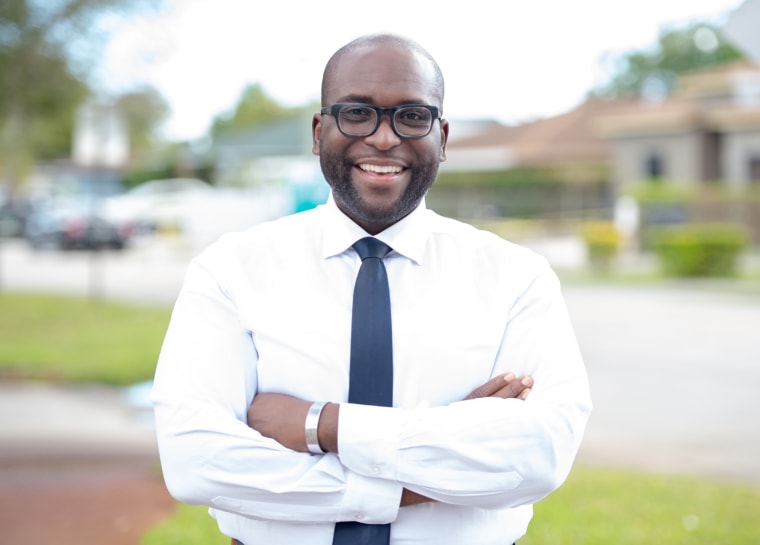
Jones was among a record number of openly LGBTQ candidates on general election ballots last week. The LGBTQ Victory Fund, a national organization that trains, supports and advocates for queer candidates, puts that number at approximately 574, and NBC News’ review of their data, state election results and local reports found that more than 220 of these candidates have already claimed victory, with dozens of contests yet to be called.
The fund estimated that in 2018, there were approximately 432 openly LGBTQ candidates on general election ballots, with 244 winning their races. This year, they expect the total number of wins to surpass this number.
While there is power in numbers, Andrew Reynolds, a Princeton researcher who has been studying LGBTQ political representation, cautioned against putting too much emphasis on overall numbers.
“The really exciting thing about the election was not the increase — it was who is getting elected,” he said, pointing to victories by queer women, people of color and transgender candidates across the nation.
“You are seeing a different type of voice emerging,” Reynolds said.
Congressional firsts
Twenty-six openly LGBTQ candidates for U.S. Senate or House were on the November ballot — the most in U.S. history. Even with one gay incumbent’s House race yet to be called, LGBTQ representation in Congress will hit an all-time high next session.
Two nonincumbent LGBTQ victors, both progressive Democrats, easily won their races. If all incumbents win, as is expected, it will increase LGBTQ representation in the House to nine, from seven, with 11 total LGBTQ people in Congress.
Related
Congress will have record number of LGBTQ lawmakers next session
Mondaire Jones, an attorney, and New York City Council member Ritchie Torres handily won their races for New York’s 17th and 15th Congressional Districts, respectively, becoming the first openly gay Black candidates elected to Congress.
“Mondaire and Ritchie have shattered a rainbow ceiling and will bring unique perspectives based on lived experiences never before represented in the U.S. Congress,” Annise Parker, president and CEO of the LGBTQ Victory Fund, said in a statement. “As our nation grapples with racism, police brutality and a pandemic that disproportionately affects people of color and LGBTQ people, these are the voices that can pull us from the brink and toward a more united and fair society.”
Six of the seven LGBTQ representatives currently serving in the House, all Democrats, have already won re-election: David Cicilline of Rhode Island; Chris Pappas of New Hampshire; Mark Pocan of Wisconsin; Angie Craig of Minnesota; Mark Takano of California; and Sharice Davids of Kansas. The seventh, Sean Patrick Maloney of New York, was leading his Republican opponent by nearly 3 percentagepoints as of Thursday with 78 percent of votes in.
There are two LGBTQ U.S. senators — Tammy Baldwin of Wisconsin and Kyrsten Sinema of Arizona, both Democrats, neither of whom was up for re-election.
Related
Biden talked a big game on LGBTQ rights. Here’s what his agenda may look like.
While an increase of two seats in the House is record-setting for LGBTQ representation in Congress, it was not the big boost advocates had hoped for. One particularly close race was the contest for Texas’ 23rd Congressional District, which out lesbian Gina Ortiz Jones lost by 3 percentage points.
“It’s all about turnout,” Don Haider-Markel, a political science professor at the University of Kansas, said. “Given the pattern over the whole night, I’m not surprised they didn’t make the inroads they thought they would. It looks like in 2020, Republicans were able to turn out their base in ways that blunted the gains Democrats, and LGBTQ candidates, could make.”
The LGBTQ Victory fund estimates that at least 90 percent of queer candidates on this year’s general election ballots were running as Democrats.
Historical state inroads
The picture is even brighter in state legislatures across the country, where a record-breaking number of more than 240 LGBTQ candidates were on the general election ballot. As of Thursday, at least 124 of these candidates had won their races, approximately three dozen of them nonincumbents. There are still a number of state legislative races with LGBTQ candidates that still have not yet been called.
“LGBTQ candidates made historic inroads in state legislatures across the country, winning in states and chambers where we never have before,” Parker said in a statement. “Trans candidates in particular had unprecedented victories, including electing our first trans state senator and almost doubling the number of trans state legislators. These down-ballot victories reflect where America stands on the inclusion of LGBTQ people in our nation’s politics and each one represents an important step forward on the march toward equality.”
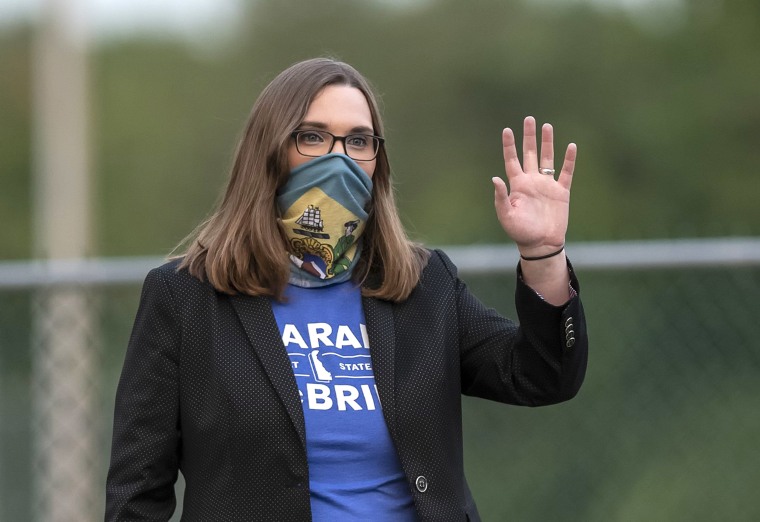
Prior to Election Day, five states — Alaska, Delaware, Louisiana, Mississippi and Tennessee — had never elected an openly LGBTQ state legislator.
Delaware leaves the list following the election wins of Sarah McBrideto the state Senate and Eric Morrison and Marie Pinkney to the state House. McBride’s win also makes her the first transgender person elected to any state Senate in the U.S.
Tennessee will also leave the list after electing its first two out state legislators — one on each side of the political aisle. Bisexual Democrat Torrey Harris and gay Republican Eddie Mannis both won seats in the state House.
Haider-Markel said Mannis’ victory is relatively unusual, as the “Republican Party has still not been that welcoming to LGBT folks.” However, Mannis will join several GOP lawmakers who won re-election last week, including Tom Hannegan of Missouri, Jason Elliot of South Carolina and Dan Zwonitzer of Wyoming, who has played a vital role in preventing the passage of anti-LGBTQ legislation in that state.
Related
Gay Asian American defeats local Proud Boys leader for Hawaii House seat
Alaska could join Delaware and Tennessee in making political history: Out lesbian Lyn Franks is in a race for a seat in the Alaska House of Representatives that is still too close to call.
“It’s really just a matter of time before you see LGBTQ representation in every state,” Haider-Markel said. “Every state has districts that are amenable to Democrats and therefore to LGBTQ candidates.”
He said LGBTQ candidates continue to win local offices and gain the political experience that allows them to run for higher office.
“The gap is really closing,” he said.
Historic wins for Black LGBTQ candidates
This year’s LGBTQ candidate pool was more racially diverse than ever. In addition to Torres and Jones in Congress in New York, many Black queer candidates had historic wins at the state level.
In Florida, along with Shevrin Jones in the Senate, Michele Rayner became the first Black queer woman elected to the Florida state House.
Recommended
OUT POLITICS AND POLICYBiden talked a big game on LGBTQ rights. Here’s what his agenda may look like.
OUT POLITICS AND POLICYLGBTQ people of color keep breaking election barriers. And it ‘feels amazing.’
Parker said she hopes these wins “inspire more Black LGBTQ leaders to step up and run themselves.”
“The politics of division and hatred failed in this race and gave way to a government that is more representative of the people it serves,” she said in a statement.
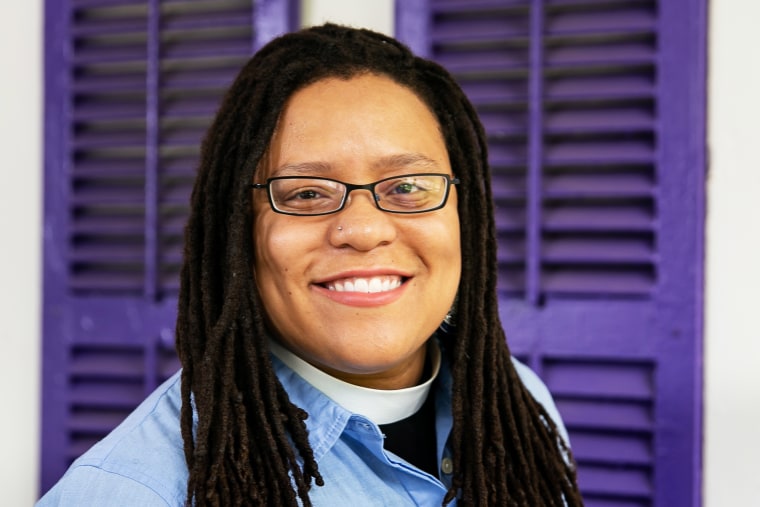
In Georgia, out lesbian Kim Jackson made history when she won her race for state Senate, becoming the first LGBTQ person elected to that chamber.
Tiara Mack in Rhode Island and Marie Pinkney in Delaware also won their races, making major inroads for Black LGBTQ women across the U.S.
Jabari Brisport won his race and will become the first openly LGBTQ person of color elected to New York’s state Legislature.
Prior to Election Day, there were just 42 openly LGBTQ state legislators of color serving nationwide, only 13 of them Black.
Regarding the diversity of LGBTQ candidates, Haider-Markel said: “It’s the same pattern we are seeing with the Democratic Party writ large. Democrats are running the kinds of candidates that reflect the Democratic base, which is a very diverse base.”
Transgender representation
Election Day was also historic for transgender, gender-nonconforming and nonbinary candidates.
In addition to McBride’s win in Delaware, Taylor Small won her race for the Vermont state House, becoming the first out transgender person ever elected to that state’s Legislature.
Stephanie Byers of Kansas won her election, becoming the first out transgender person ever elected to the Kansas state House and the first out trans person of color ever elected to a state legislature in the U.S.
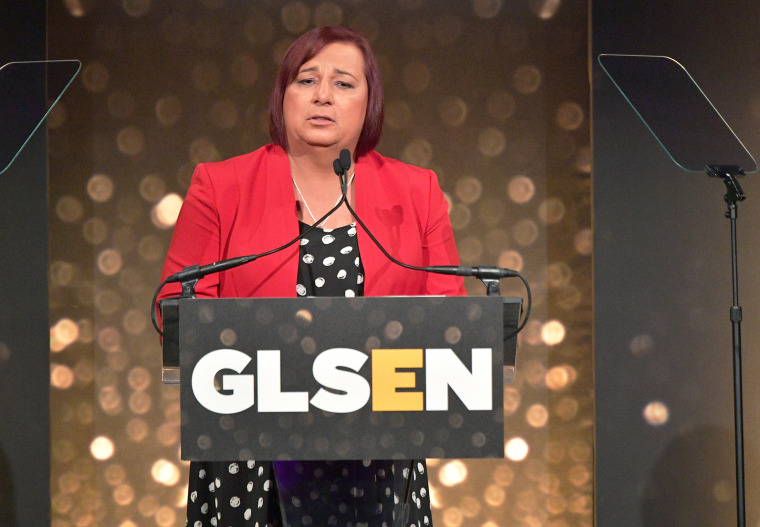
Incumbent transgender state legislators Lisa Bunker and Gerri Cannon in New Hampshire and Brianna Titone in Colorado, all won their races.
These victories take transgender representation at the state level from four to seven.
Danica Roem, who became the first openly transgender legislator anywhere in the country in 2017, congratulated the winners on social media.
“Before I ran in ’17, we had no out trans state legislators. In ’21, we’ll have 7,” she tweeted.
Mauree Turner won their race for the Oklahoma state House and became the first openly nonbinary person ever elected to a state legislature in the United States.
Joshua Query, running for re-election to the New Hampshire state House, will be the first openly gender-nonconforming person elected to a state legislature. Query did not run openly as gender-nonconforming when they first won in 2018.
Local milestones
At the local level, LGBTQ candidates achieved important milestones as well. Todd Gloria won his election for Mayor of San Diego, becoming the first out LGBTQ person elected mayor of that city.
Last month in Alaska, Austin Quinn-Davidson became the first openly LGBTQ mayor in Anchorage when the incumbent resigned.
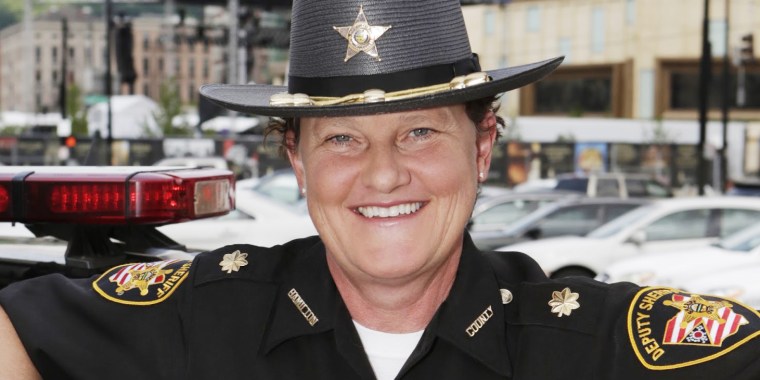
In South Carolina and Ohio, out lesbians Kristin Graziano and Charmaine McGuffey won their elections last week to become sheriffs of Charleston County and Hamilton County, respectively.
Prior to last week’s general election, McGuffey defeated her former boss in the primary, whom she said had fired her, in part, due to her sexuality.
‘A seat at the table’
While last week’s victories for lesbian, gay, bisexual, transgender and queer candidates have increased representation across the U.S., just a fraction of a percent of the country’s roughly half million elected officials are LGBTQ, according to the LGBTQ Victory Fund.
On the federal level, LGBTQ representation in Congress stands higher, at about 1.7 percent, and that number is expected to increase to 2 percent in January once Mondaire Jones and Ritchie Torres are seated. At the state level, Reynolds of Princeton estimates the current percentage sits at 2.1 percent and will increase to 2.2 percent once all of this year’s election winners are seated — an increase he refers to not as a “rainbow wave” but as a rainbow “splash.”
With LGBTQ people making up an estimated 5 percent of the U.S. population, the Victory Fund estimates we would need to elect 22,000 more lesbian, gay, bisexual, transgender and queer elected officials to achieve “equitable representation.”
“I truly believe when we all have a seat at the table and everyone is represented,” Shevrin Jones said, “it makes our nation better.”